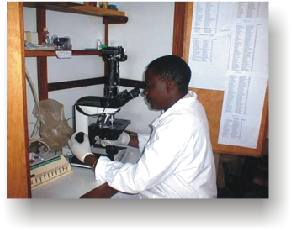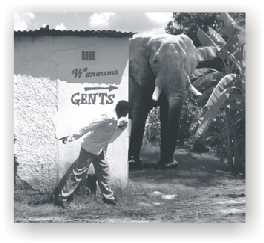Disease surveillance and research focuses on the study of those
conditions relevant to the health of wildlife, but which are also of
economic importance to livestock or that can infect people
e.g. Tick-borne diseases, Tuberculosis, Trypanosomiasis (sleeping sickness), Anthrax,
Brucellosis, Rabies, Foot and Mouth Disease, Rift Valley Fever, African Swine Fever,
Malignant Catarrhal Fever, Rinderpest, Avian Influenza, Canine Distemper and others.
A national wildlife sample bank of blood and tissues has been maintained since 1998
that contains specimens from both animals handled for research or snare removal,
plus from opportunistically found carcasses and road kills. This growing archive
is of great value and importance to current and future research on many species.
The project manager’s experience in human-elephant conflict (HEC) in the rest of
Africa is now focused in Tanzania where various projects and initiatives are taking
place at all administrative levels of affected rural communities and government authority,
prioritizing the mitigation of this problem. Issues concerning other wildlife problem
species can also benefit greatly from these approaches, the aim of which is to continually
improve the management of human-wildlife conflict in the country.











